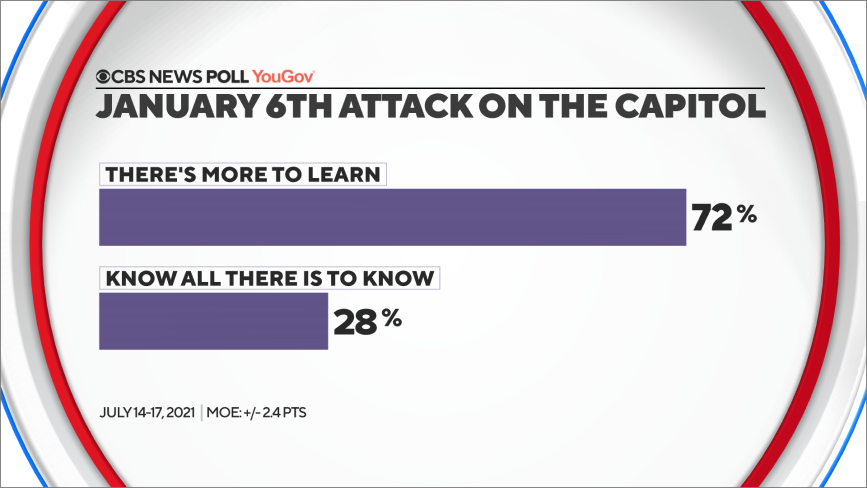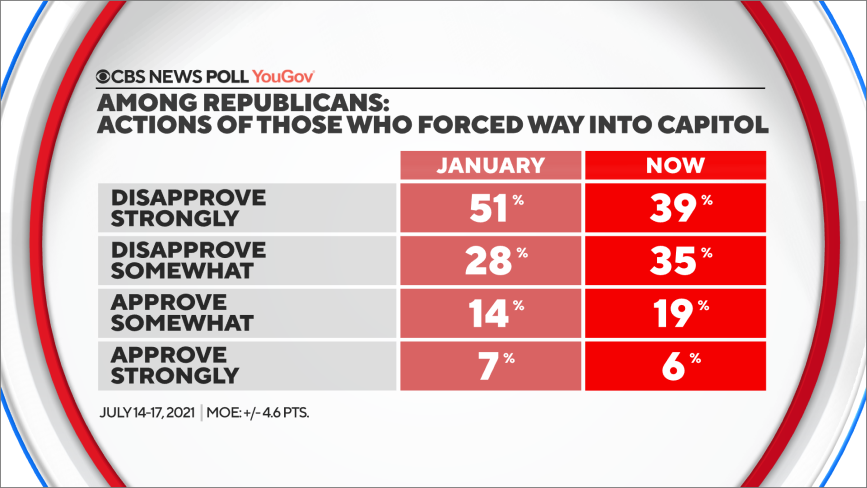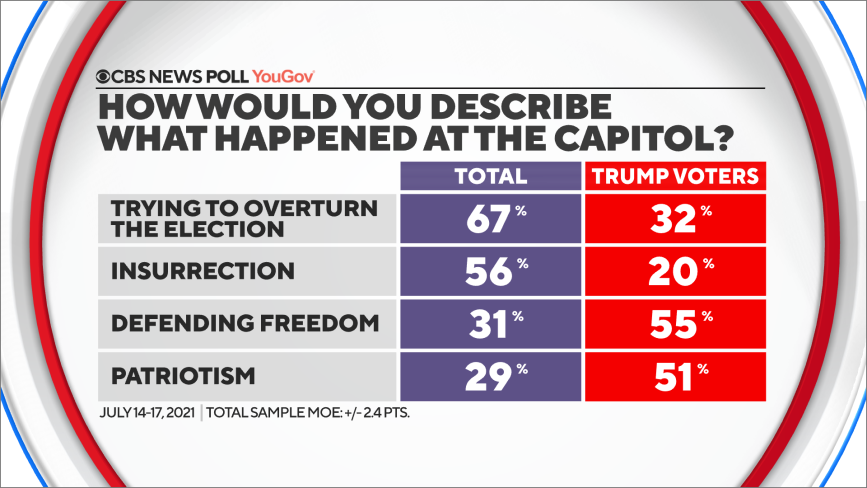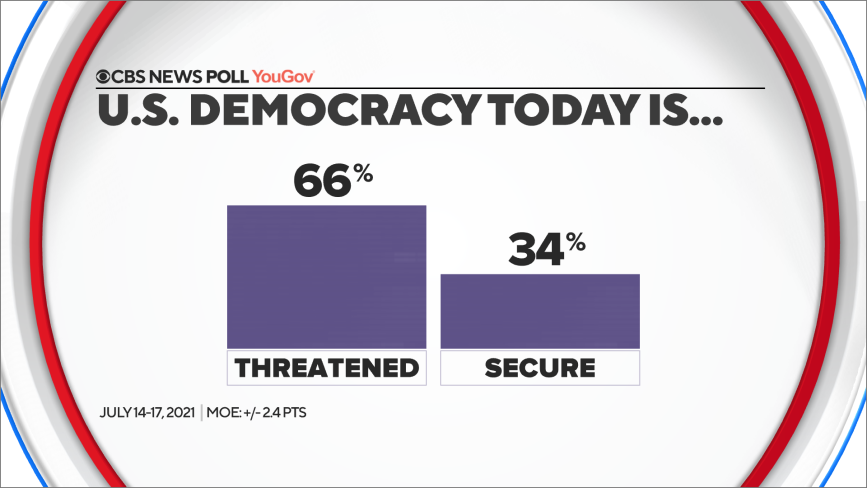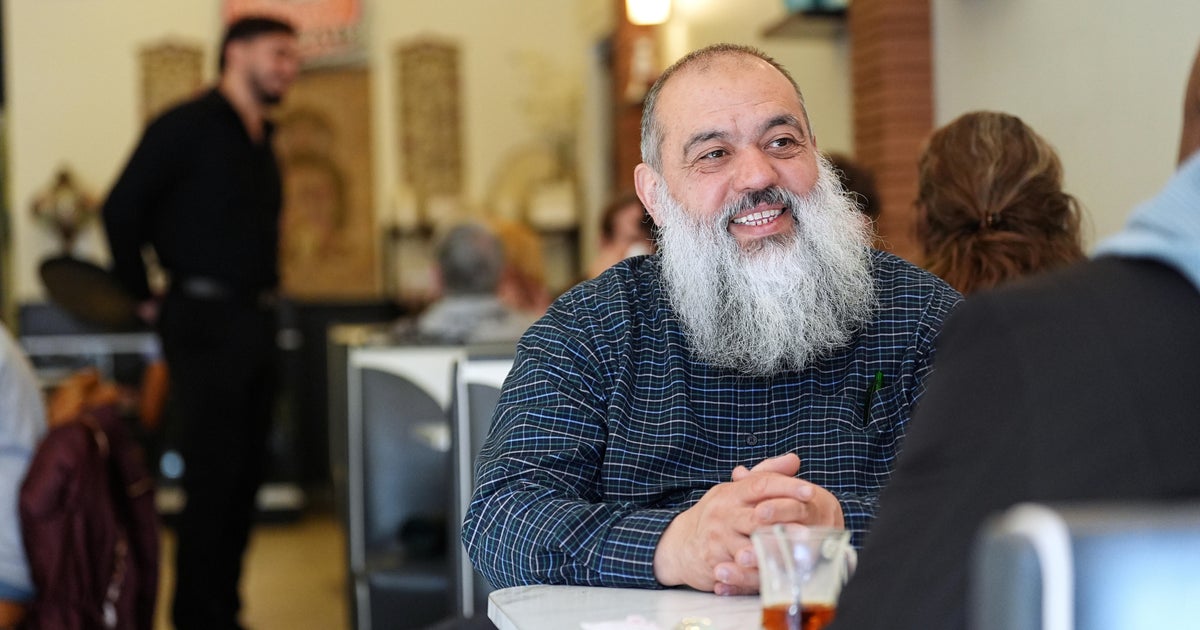CBS News poll: Still more to learn about January 6, most Americans say
With Congress' January 6 Select Committee slated to start work soon, Americans still overwhelmingly disapprove of the events they witnessed that day, a sentiment that includes big majorities of both Republicans and of former President Trump's voters, too — and most do think there's more to learn about it. But beyond that larger sentiment, not everyone describes what happened the same way.
A majority of Americans still specifically call what happened that day an "insurrection" and an attempted overthrow of the government. This is where most Democrats and independents land. But roughly one-third of the country call it patriotism, or defending freedom, even though some of them nonetheless disapprove of the attack itself. And on those descriptors, we see divides within the GOP.
This may be worth watching: among Republicans, there is some shifting sentiment as they disapprove, though not quite as strongly as they used to. This less intense disapproval, among some in the Republican base, comes perhaps on the heels of recent comments about the day from former President Trump and others.
Descriptors with ideas like freedom and patriotism remain relegated to a smaller — but so far, durable — part of the political right, and Trump voters are more likely than Americans as a whole to use them.
The percentage of self-described conservatives who describe what happened as "patriotism" is up a bit from January, about half of self-described conservatives now.
Soon after the events, most told us they felt democracy itself was imperiled, and most continue to express that concern. But tellingly, there's little connection between whether one approves or disapproves of the events or not, and whether one feels democracy is under threat.
They believe the latter either way.
This CBS News survey was conducted by YouGov using a nationally representative sample of 2,238 U.S. adult residents interviewed between July 14-17, 2021. This sample was weighted according to gender, age, race, and education based on the U.S. Census American Community Survey, and the U.S. Census Current Population Survey, as well as 2020 presidential vote. The margin of error is ± 2.4 points.


